The brazen, midmorning shootout on an Austin street Oct. 1 that killed a 32-year-old man stunned the city and political leaders, piling onto existing worries over stubborn gun violence in Chicago.
And the subsequent release of several people who were taken into custody afterward drew an immediate rebuke from Mayor Lori Lightfoot, who turned to the media to sharply criticize both the Cook County state’s attorney’s office and her own chief of detectives, saying failure to secure charges in the shooting and hold someone accountable threatened to send the city further into chaos.
It came at a particularly fraught moment, as violence has spread into wealthier and normally quiet corners of the city and as high-profile residents such as hedge-fund kingpin Ken Griffin have leveled new criticism at the mayor and threatened to leave for good.
But details of the case and Chicago’s current struggle to secure charges against those engaging in gun violence is far more complicated.
For one, the investigation of the shooting in question is not over, a point that seemed lost in the exchange of political rhetoric over the past several days. And there were specific case details that made filing charges difficult, authorities said, including a city camera that while it captured the shooting, was not pointed directly at the gunmen, at least some of whom who were masked.
Experts also pointed to other, more deeply rooted problems that continue to affect the ability of the criminal justice system to hold offenders accountable, including decades of abuses and wrongful convictions that have resulted in a lingering distrust of police in some neighborhoods.
Add to that the fear many residents feel about cooperating, and police are often left without critical help from eyewitnesses or even victims, as was the case in this month’s shootout and its aftermath.
Before the week was over, Cook County prosecutor Kim Foxx had fired back at Lightfoot, calling a news conference to say she would not be forced to turn back the clock because of political pressure or escalating fear as violence rages.
“As an elected official I cannot operate under a premise that anything goes in a time of crisis. We did that in the ‘80s and the ‘90s, and we’re paying for that today with wrongful convictions that are being overturned, postconvictions that you all write about every day,” Foxx said. “ … We are and have been the source of the most wrongful convictions in the country … We cannot cut corners. We cannot play games. We must operate as the professionals that we are.”
A stunning attack
It was midmorning on a Friday when two Dodge Chargers twice circled the 1200 block of North Mason Avenue. At least three people then got out and opened fire in the direction of a house there.
Those inside returned fire. Killed in the exchange was Devlin Addison, who, according to a preliminary police report was with the group that opened fire from the street. Two others were shot as well, but they survived.
Things only ended after SWAT officers were called to help clear the home that was targeted by gunfire. A 26-year-old inside the home was shot, and another person outside, a 20-year-old man, was shot in the chest.
The drivers of the Chargers meanwhile had fled, and one of the cars was later found engulfed in flames nearby. Police said the driver of the second vehicle, another 32-year-old man, drove to West Suburban Medical Center in Oak Park and dropped off the 20-year-old before being apprehended by Oak Park police.
The scene, as described by Chicago police Chief of Detectives Brendan Deenihan, was “convoluted.”
The fact the shooters were wearing masks, making them hard to identify, along with the street camera capturing only a portion of the shooting, made solving the case difficult, a source close to the investigation told the Tribune.
In addition, the occupants of the home that was fired upon did not cooperate with police, authorities said.
Chicago police ultimately sought murder charges anyway, but the Cook County state’s attorney’s office said no, saying those involved were “mutual combatants,’ according to a preliminary police report.
At her news conference Tuesday, Foxx focused more on the evidence, saying the case that was presented to her was for murder charges, but that it was not strong enough to bring to court and present to a jury. Foxx also said that she expected the case to continue to be investigated by detectives in the coming days.
“We are continuing to gather evidence, and I think the understanding that I have from Chief of Detectives Deenihan is that, yes, while they want charges, what they recognize (is that) the evidence that was presented to us at the time did not support any charges, as of yet,” she said.
Meanwhile, some have raised questions about why the state’s felony-murder statute was not utilized. Under felony-murder theory, a person can be charged with murder in certain circumstances, even indirectly, if they are found to be committing another forcible felony crime when a killing takes place.
Last year, the state tightened the law around felony murder as part of a sweeping criminal justice reform bill signed into law by Gov. J.B. Pritzker.
The change precluded the charge in cases where a “third party” — and not a potential defendant in the case — causes the death of someone. For example, if two people are stealing a car together and the car owner shoots and kills one offender, the second offender could have faced felony murder charge under the previous use of the law.
Based on the limited public details available in the shootout case, the change in the law does appear to eliminate the possibility of charging any of the people who fired from the street with murder, said Jobi Cates, executive director of Restore Justice, which lobbied for the change in the law.
Cates said the point of the change was to make sure a murder charge is not used sweepingly on defendants whose role in a crime was less than others.
“Our sentencing structure for first-degree murder with a gun is so severe that using that same sentence for someone who was fundamentally not a person who committed the murder is wrong,” she said.
As for sending a strong message that criminals will be held accountable, Cates said research shows that the fear of a severe sentence, such as those typical with a murder conviction, doesn’t deter people. But what does is that there will be a certain and swift response from the criminal justice system, she said.
Many have complained that is not happening in Chicago right now. Chicago police detectives have made strides only in the past few years to improve homicide clearance rates.
But Chicago police have historically complained about prosecutors and judges not doing their part either. That criticism has intensified in recent months with comments from Superintendent David Brown, who has criticized the judiciary for setting low bonds that create a revolving door at the Leighton Criminal Court Building.
Frustration and sadness
This month’s Mason Avenue shooting was handled by Area 5 detectives, who have pushed for charges in a number of high-profile cases over the last year that prosecutors wouldn’t immediately take to court, forcing police instead to continue working the cases.
Such decisions often create tension between police and prosecutors, as detectives often think their cases are solid enough for a jury while prosecutors believe there isn’t enough evidence for a conviction.
In Area 5, the recent tension dates back to spring, when detectives were investigating a pattern of unsolved slayings allegedly involving the Spanish Gangster Disciples street gang. Though they secured charges against two people for the Sept. 16, 2020, slaying of a 20-year-old in Albany Park, other suspects being eyed in other homicides were released from custody after prosecutors wouldn’t approve charges.
In July prosecutors declined to bring charges against a suspect in the slaying of 19-year-old Chrys Carvajal, a National Guardsman who was shot on the Northwest Side while visiting his family. Carvajal’s relatives held at least one rally calling for justice in that case.
Then last month the tension escalated during the investigation of the slaying of a child.
Detectives were confident they had built a case against a 24-year-old parolee in an August shooting on the Northwest Side that left 7-year-old Serenity Broughton dead and her 6-year-old sister wounded, but prosecutors rejected the charges citing various weaknesses, including a lack of cooperation from the person authorities had deemed the intended target.
Police, maintaining their case was solid, initially took a rare step of overriding prosecutors’ decision, intending to take the case to court without their blessing. The move by Area 5, a so-called “felony override,” was eventually reversed by top Police Department brass who didn’t wish to get into a political fight about the case with Foxx.
On Sept. 4, a little more than an hour after the Tribune reported the back-and-forth between police and prosecutors during the shooting investigation, the newspaper obtained a memo detailing the state’s attorney’s office’s rationale for not approving charges. Some of the reasons included a lack of cooperation from one of the girls’ relatives, allegedly the intended target, and lack of good video and physical evidence tying the parolee to the shooting.
The memo also alleged that one of the detectives on the case “did not wish to do any more work on the case,” and wanted the charges to be rejected.
Area 5 Detective Cmdr. Eric Winstrom, who oversaw the shooting investigation, wrote an email to his entire detective unit decrying the prosecutors’ memo, saying it “contains incorrect and misleading information.”
“Detectives investigating the murder of precious 7-year-old Serenity Broughton have worked tirelessly to follow every lead and take every investigative step necessary to bring justice for the girl and her family,” Winstrom wrote in the email, also obtained by the Tribune. “Characterizing facetious comments expressing frustration with (the Cook County state’s attorney’s office) not charging the case as ‘wanting them to reject charges,’ or our declining to take counterproductive investigatory steps as ‘not willing to do any more work’ are disingenuous and offensive.”
Winstrom wrote how hard it is for detectives to respond to violence day and night without getting results.
“Suffering through sadness of such a senseless death enduring endless workdays and sleepless nights to bring some justice and closure for the family can feel like something no one else really gets,” the commander wrote. “But I know we have some partners in (the Cook County state’s attorneys office) who have the same heart and passion.”
The bad blood between Area 5 and Foxx’s office continued with the Mason Avenue shooting when details leaked to the media after charges were rejected.
On Tuesday, Foxx used her platform to not only respond to the mayor, calling her comments inappropriate, but to implicitly accuse Area 5 detectives of bringing a weak case in the shootout investigation. She also accused detectives of leaking information in their favor.
In her comments Tuesday Foxx also spoke of the frustrations she and her prosecutors also feel over the ongoing violence, including the slow progress resolving it.
But she insisted that she can’t charge people without evidence.
“The only way that we can move forward to prevent violence and to respond to violence is to create trust in our criminal justice system,” Foxx said. “That means we cannot lie about evidence. It means that we cannot circumvent the courts and the due process that is required.”
War of words
Late Thursday, Lightfoot and Foxx met to discuss the recent issues, along with Superintendent David Brown and Deenihan.
But in a sign of how strained the situation remained, Foxx issued a statement ahead of the gathering that suggested Lightfoot’s decision to issue a statement on the matter through her campaign email was for political gain.
And after the meeting was held, the two offices issued separate statements, with Foxx pointing out that Chicago police officials continued to agree that the evidence was not sufficient. Lightfoot called it a “productive meeting” and said they’d continue to “strengthen our collaboration on behalf of the residents of Chicago.”
To be sure, a sustainable solution to Chicago’s gun violence will be years in the making. That includes the long history of segregation that has left large areas of the city underresourced, the easy availability of guns that flow into the streets, and decades of police abuse that has left communities wary and unwilling to work with officers.
Strides have definitely been made. Chicago police are currently engaging in court-monitored reform, and Lightfoot has opened the city’s first-ever Violence Prevention office.
Meanwhile, the public conflict between Lightfoot and Foxx disturbed other community leaders.
“I’m a Black man, I’m a pastor in this community, and we have two African American women just calling out each other, and we’ve got serious issues going on in our community,” said the Rev. Ira Acree, who added that he wished Lightfoot had picked up the phone to talk to Foxx before the open feud.
“I don’t understand why the police chief, the mayor, state’s attorney, president of the Cook County Board, why they can’t all get in a room and come up with resolutions rather than having this war of words,” Acree said.
Acree, a longtime pastor on the West Side whose church is three blocks from the Mason Avenue site where the shootout took place, said his congregation is tired and scared of the gun violence and wants strong, but also fair and just policing to help eradicate it.
“There’s no will for the political leaders to work together,” Acree said.
©2021 Chicago Tribune. Visit chicagotribune.com. Distributed by Tribune Content Agency, LLC.
—-
This content is published through a licensing agreement with Acquire Media using its NewsEdge technology.



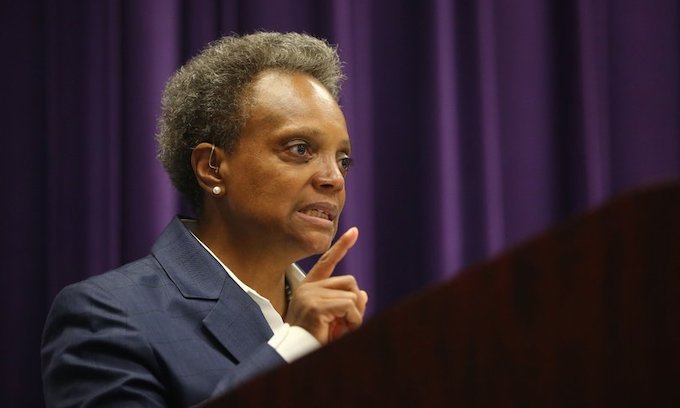
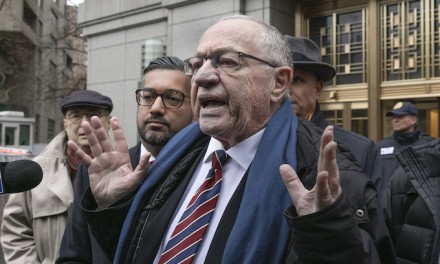
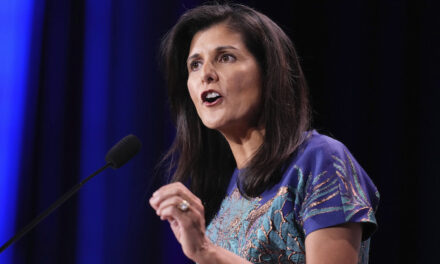
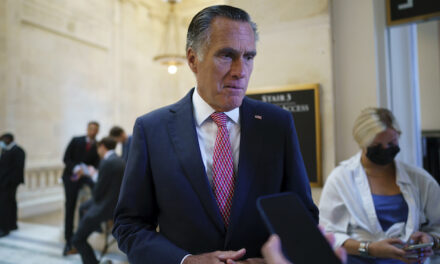
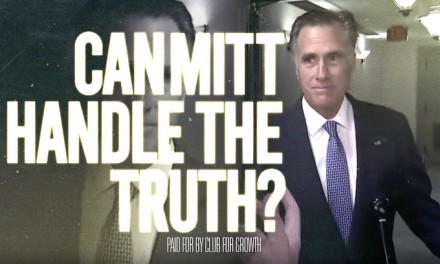











A long article that arrives at conclusions that nobody wants to agree upon.
Way too much politics in Chicago—not just the fact that it is under Democrat control—but there is division between the mayors, the prosecutors, and the judges, and the police—nobody wants to be on the same page—just typical Democrat response by name-calling and finger-pointing.
If “the system” is not going to work—and how can it with the players it has in it—then it must be agreed upon that criminals will be spoken to in the language they understand. It may sound harsh—it may sound inhumane—but police must be given the right to start taking out lawbreakers—if they want to live by the gun, then they will have to face the reality that they can die by the gun. This endless legal and political approach is accomplishing nothing. Once criminals understand that they will be taken down on the spot—no more game-playing—no more Mr Nice Guy—the violence will come down. The price for participation needs to be severe enough to deter it.
For years, i’ve been advocating a NO HOLDS BARRED approach to taking out the gutter trash known as chicago’s gangs..
It’s a Chicago remake of the Disney “Fox and the Hound” where the two friends struggle to preserve their friendship despite their emerging instincts and the surrounding social pressures demanding them to be adversaries, as they are enemies by nature of themselves as per the Democrat Laws of the Chicago Democrat created Jungle, where it is the survival of the party fittest,,,,and enemies of THE PEOPLE where no laws are imposed or enforced that stand in the way of their new social order where social disorder is the flavor of the day used to promote their taste for power OVER,,,THE PEOPLE.
It’s a Chicago remake of the Disney “Fox and the Hound” where the two friends struggle to preserve their friendship despite their emerging instincts and the surrounding social pressures demanding them to be adversaries, as they are enemies by nature of themselves as per the Democrat Laws of the Chicago Democrat created Jungle, where it is the survival of the party fittest,,,,and enemies of THE PEOPLE where no laws are imposed or enforced that stand in the way of their new social order where social disorder is the flavor of the day used to promote their taste for power OVER,,,THE PEOPLE.
Only their Liberal music of social division is released when these two competing Pandoras open their Pandora box to let loose the evil spirits and social tricks that leaves hope alone still locked inside, and law abiding citizens locked out of government control.
Both Foxx and Lightfoot need to resign, YESTERDAY ! Chicago needs some problem solvers not do nothings.
They both need to be JAILED, as accessories to everyone of these shootings imo.
Welcome to Chicago, we hope you enjoyed your stay. If you survived a “shootout” please let us know and you will be entered into our daily raffle to win another 2 days in Chicago!
Make that the new tag line, for the next season of “Survivor!”
“stunned the city”? I beg to differ!
I sincerely doubt that ANYONE is Chicago is “stunned” that there was YET ANOTHER MURDER in their city!
This is just ANOTHER example of Liberal (Democrat) policy (of coddling the CRIMINALS, and doing NOTHING to keep their citizens SAFE)!
But you watch… There will be RENEWED calls for MORE Gun Control legislation (and a further eroding of our 2nd Amendment RIGHTS)!
MY RIGHTS MATTER
OUR RIGHTS MATTER